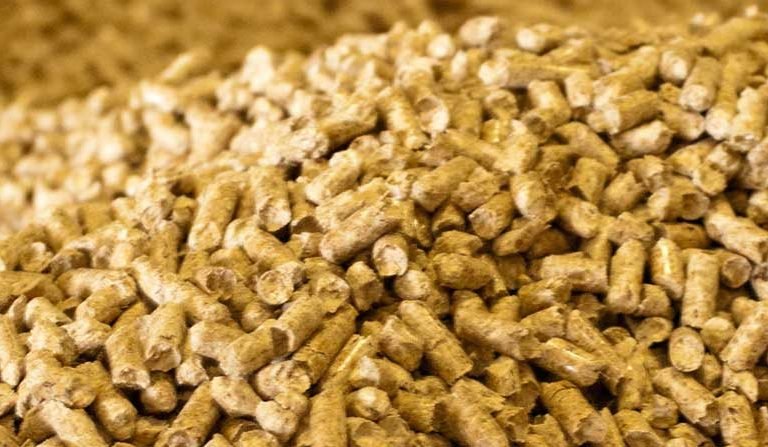- A bill in Guatemala’s congress would renew a contract for the current oil and gas pipeline in Laguna del Tigre National Park and make it easier to contract future drilling.
- The region’s largest oil reserves pass from southern Mexico through the Petén department and into Belize, making Laguna del Tigre National Park an ideal focus of development, some environmentalists warn.
- Additional development could lead to the creation of roads, making it easier for illegal loggers, drug traffickers and land grabbers to move into the park, as happened when the original oil field was created in the 1980s.
FLORES — One of Guatemala’s most under-threat protected areas may face future oil and gas development, as lawmakers consider whether to expand extractive activities in the region and the construction of additional pipelines.
A bill in Guatemala’s congress would not only renew a contract for the current oil and gas pipeline that already operates in Laguna del Tigre National Park, but also make it easier for potential expansion of drilling and pipeline construction.
The park, located in the Maya Biosphere Reserve, part of the largest rainforest in Mesoamerica, has been inundated with cattle ranching, squatters and loggers, raising questions about whether it would be better in the long run to risk development in the area for the good of the national economy.
“In the area of the park, under all that natural wealth and around the wetlands, there’s so much oil and without a doubt the state will facilitate that through contracts,” said Rosita Contreras, Executive Director of ProPeten, which works with communities in the area.
Current oil extraction in Guatemala is conducted by Perenco, a European oil and gas company that has thousands of wells across 14 countries in Latin America, Africa, Europe and Southeast Asia. Its Xan field in Guatemala currently produces between 5,000 and 7,000 barrels of crude oil a day, or around 90% of national output.
The bill would renew Perenco’s contract on the land, originally granted in 2001, while also eliminating the 40-year limit that requires periodic review of the contract terms, allowing the company and potential future operations to run indefinitely as long as they’re making a profit.
The reform would give more power to the private sector, in theory attracting foreign investment in petroleum at a time when Guatemala’s oil production — and profits — have steadily declined, according to the Ministry of Energy and Mines (MEM).
“There is an immediate need to increase the exploration and exploitation of hydrocarbons, allowing for the discovery of new reserves and increased production in order to guarantee that the state’s income from these activities is not only maintained but increased significantly,” the bill said.
Congress’ public finance commission approved the bill in August, but there hasn’t been further debate scheduled this year.
While the bill doesn’t specify where new oil exploration will take place, the region’s largest oil reserves pass from southern Mexico through the Petén department and into Belize, making the Maya Biosphere Reserve — and Laguna del Tigre National Park, where oil fields already exist — an ideal focus of development, some environmentalists warn.
In a July statement, the Central American Institute for Fiscal Studies (ICEFI) questioned the possible renewal of Perenco’s contract and recommended that congress not pass reforms to the hydrocarbons law. Instead, it suggested a transparent and competitive bidding process for the Xan field contract, which would ensure that the highest possible operational standards are met.
Perenco didn’t respond to several requests for comment for this story.
In addition to over a dozen oil separators, four heater treaters, 56 wells and a power plant, the Xan operation in Laguna del Tigre relies on a 450-kilometer (280-mile) pipeline that transports oil south to a mini-refinery in the town of La Libertad, according to the bill.
New operations would likely need similar equipment and require the clearing of protected forest. Conservationists also have concerns about the long-term impact of the infrastructure brought into the forest and what will happen to it once the oil dries up.
Transporting infrastructure and the oil it produces would also likely require the construction of additional roads, which for some conservationists is a more serious threat than the oil field itself.
When the original pipeline was being built in the 1980s, a road was laid through the rainforest connecting to the Xan field. At the time, it was one of the only formal roads in the area. As the country’s civil unrest continued to create internal displacement, and residents looked to agricultural and cattle ranching to survive, the road allowed — or at least accelerated — an influx of settlers in the area that would eventually become Laguna del Tigre National Park.
“There weren’t any people there,” said Ervin Salvador López, the cultural heritage and Indigenous peoples program coordinator for the Balam Association, a local NGO. “But when the highway opened, people began to arrive and they started populating the whole area along the road.”
There is some debate about whether the arrival of settlers was the result of the road itself, or poor oversight by the government and military forces.
“There were a lot of migrants who came from the southern coast, from the east. They had hopes, at that time, about an oil company that was coming in, because many people wanted to settle near it and work,” Salvador added. “They didn’t realize that there were other alternatives. That’s when things began: deforestation but also illegal trafficking.”
Perenco has largely mitigated deforestation and oil spills since taking over the operation. The company also makes sizeable contributions to conservation efforts. Since 2009, FonPetrol has given more than $23 million to protected area surveillance efforts, according to MEM. However, those donations decreased significantly in 2017, from well over $2 million a year to closer to $600,000 a year.
Some conservationists — who wished to remain anonymous due to their relationships in the park — also told Mongabay the gifts are more for public relations than a true way of correcting environmental damage, since most of the money stays in administrative offices and doesn’t impact conservation work on the ground. They said they have their doubts that any additional extractive operations in the area would do a better job of giving back to local ecosystems and the local communities that protect them.
“The majority of environmental organizations have always expressed their concern about whether oil exploitation is compatible with conservation,” said Contreras, of ProPeten. “But it’s a bit complicated, and we don’t have the necessary strength to oppose it or to say what’s okay and not okay.”
Banner image: Tikal National Park in the Maya Biosphere Reserve. Photo via Jason Houston for USAID/Flickr.
FEEDBACK: Use this form to send a message to the author of this post. If you want to post a public comment, you can do that at the bottom of the page.











